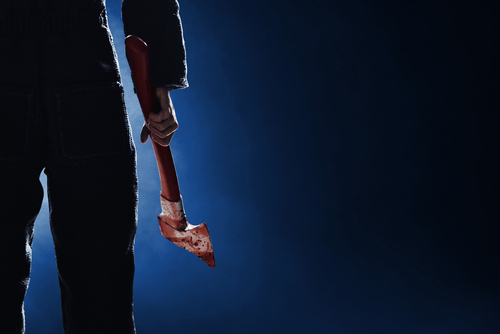Hamilton County Coroner Jeff Jellison is questioning whether notorious serial killer Herb Baumeister’s 1996 death was actually suicide, reopening one of America’s most disturbing cold cases that authorities prematurely closed nearly three decades ago.
Coroner Challenges Decades-Old Death Ruling
Hamilton County Coroner Jeff Jellison has publicly questioned the circumstances surrounding Herb Baumeister’s 1996 death in Canada, which was officially ruled a suicide. Jellison’s renewed investigation focuses on whether law enforcement adequately examined all aspects of Baumeister’s death before declaring the case closed. The coroner’s skepticism stems from the abrupt halt of the investigation immediately following Baumeister’s death, despite thousands of unidentified human remains at Fox Hollow Farm. This represents a concerning pattern where justice is denied simply because a suspect dies before trial.
The Chilling Secrets of Fox Hollow Farm
Nestled in the woods of Westfield, Indiana, Fox Hollow Farm appears peaceful—but it hides a terrifying history. In the early 1990s, this seemingly idyllic estate was home to Herb Baumeister, a successful businessman and family man. But… pic.twitter.com/ZfujSfMihl
— Wired4WondersTales (@wired4wonder) August 4, 2025
Massive Crime Scene Reveals Investigation Failures
Fox Hollow Farm in Westfield, Indiana, contains the second-largest collection of unidentified human remains in the United States, exceeded only by the World Trade Center site. Baumeister allegedly killed numerous men throughout the 1990s, with only eight victims officially identified before the investigation ceased. The Hamilton County Coroner’s Office now uses advanced forensic genealogy through GenGenies to match DNA from bone fragments to living relatives across the nation. This technological breakthrough exposes how poorly the original investigation served victims’ families, who deserved thorough identification efforts regardless of the suspect’s fate.
Modern Technology Delivers Overdue Justice
Jellison’s office has successfully identified two additional victims using DNA analysis and genealogy techniques unavailable in the 1990s, with three more identifications pending verification. GenGenies provides these specialized forensic services at no cost, demonstrating the private sector’s commitment to solving cold cases abandoned by government agencies. The renewed investigation leverages cutting-edge technology to provide closure for families who waited nearly thirty years for answers. This progress highlights how institutional accountability and modern forensic methods can resurrect cases that bureaucratic inertia left to gather dust.
Professional Standards Expose Past Negligence
The International Association of Coroners and Medical Examiners has recognized Jellison’s office for maintaining high investigative standards, contrasting sharply with the original case handling. Jellison’s commitment to thoroughness reveals how the 1996 investigation failed basic professional obligations to victims and their families. The coroner’s willingness to question official narratives and reopen closed cases demonstrates the kind of accountability that protects public trust in law enforcement. This approach ensures that justice doesn’t end simply because a suspect dies, maintaining the constitutional principle that all victims deserve equal protection under the law.
Sources:
Jellison announces run for coroner
CrimeCon 2025 Guest: Jeff Jellison
New DNA technology, witness revelations expose dark secrets

